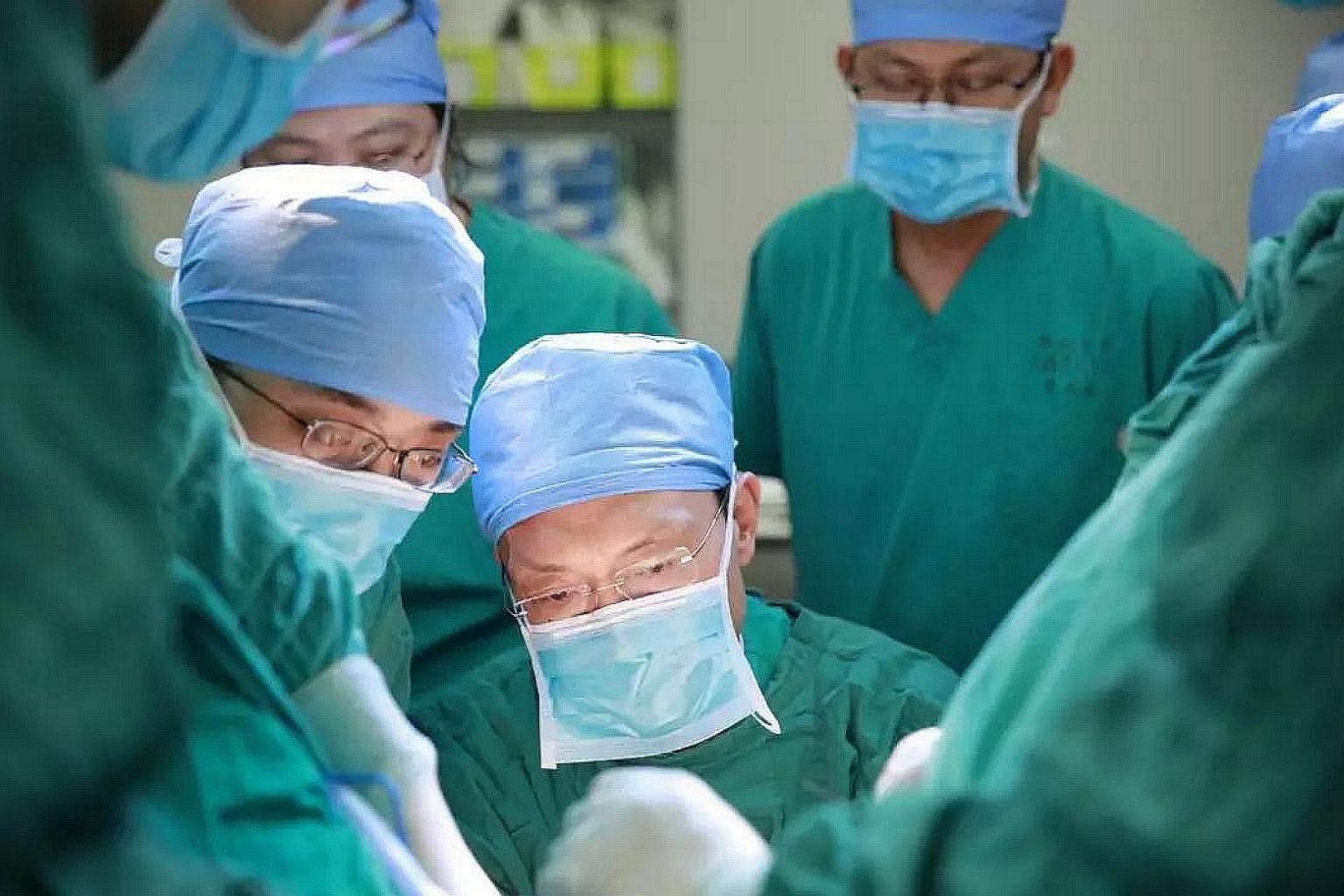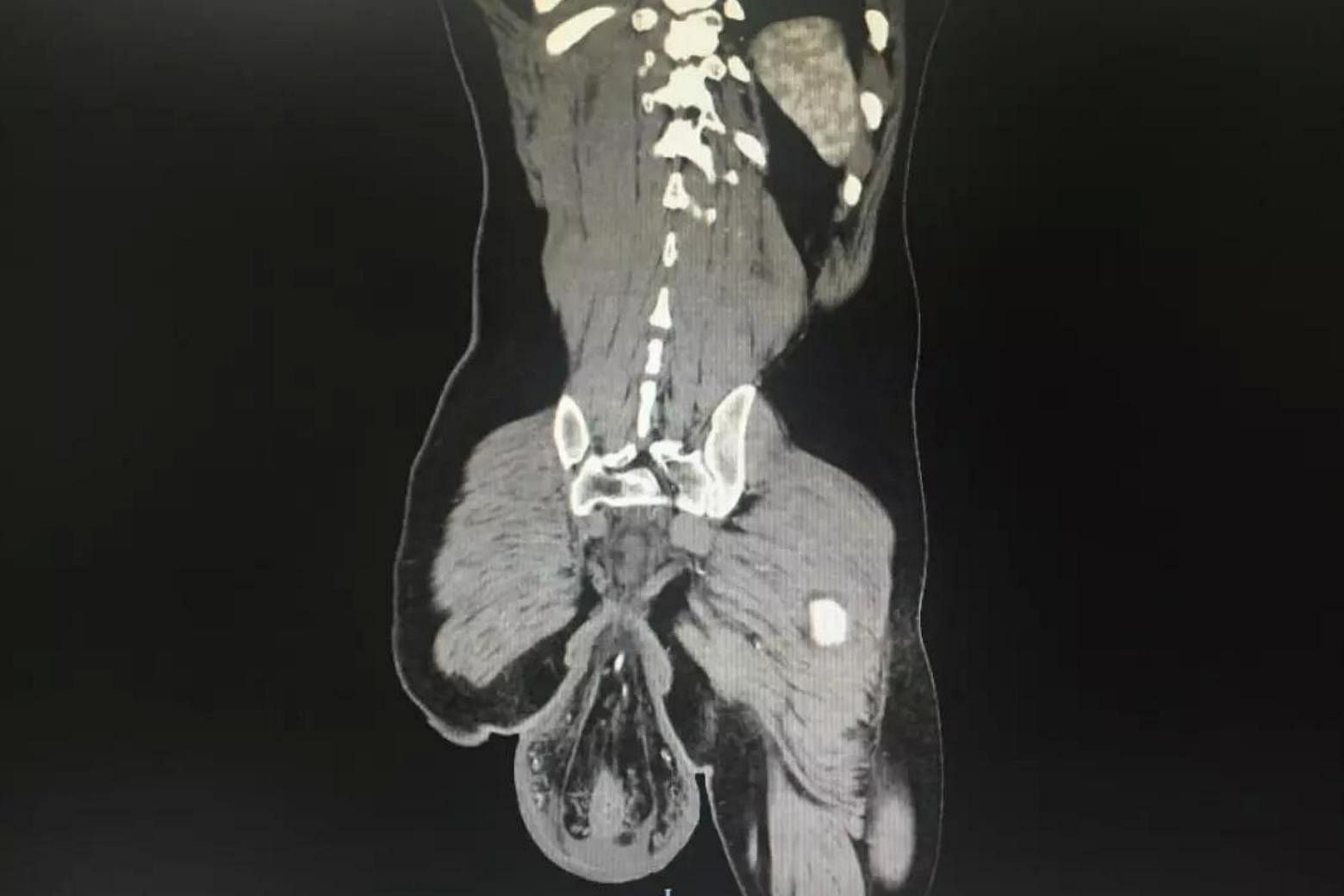Man in China suffers prolapsed rectum after using phone on the toilet for 30 minutes: Hospital
Sign up now: Get insights on Asia's fast-moving developments

Doctors performed inspections and found that he had a "tail" measuring about 20cm long emerging from his buttocks, that turned out to be his prolapsed rectum.
PHOTO: SOHU/THE SIXTH AFFILIATED HOSPITAL OF SUN YAT-SEN UNIVERSITY
A hospital in China's Guangdong province has put out an advisory after it treated a man who suffered a prolapsed rectum while playing a mobile phone game on the toilet for about half an hour.
The advisory by Zhongshan city hospital Zhongshan Liu Yuan, or The Sixth Affiliated Hospital of Sun Yat-sen University, was posted on Chinese search engine and news site Sohu.com on Friday (Feb 9) and has been picked up by the international media.
"The man has suffered rectal prolapses from when he was a boy," wrote the hospital. "But he did not take note of it over a long period of time, and did not want to cultivate good toilet habits. He also had the modern-day habit of sitting on the toilet for a long time while playing with his phone."
The hospital's Professor Ren Donglin said: "It's because of the long-term habit of sitting on the toilet for long periods of time that created great pressure on the abdomen, eventually resulting in rectal prolapses that progressively got worse (over the years)."
According to the advisory, the hospital received the emergency case at 1am recently. The patient had a pained look on his face and was leaning on his friends as he was unable to walk by himself.
Doctors who examined him found a "tail" measuring about 20cm long emerging from his buttocks. This turned out to be his prolapsed rectum.
The doctors assessed that this was not a critical situation, but warded the man all the same as the organ could be subject to necrosis or perforation if exposed for too long.
Dr Su Dan, who specialises in surgery for rectal prolapses, ran a CT scan on the man's abdominal area to eliminate the possibility of him dying from loss of blood or necrosis before a team of doctors operated on the man.

"Although it looked very serious, the entire surgery process was very smooth, and the man no longer had a 'tail' after the surgery," said the hospital.
The man's relatives arrived at the hospital after the surgery, and he could walk slowly two days after the operation.
He later went home with his family.
Professor Ren said people of all ages may suffer rectal prolapse, but children and the elderly are more susceptible to it.
According to Singhealth, rectal prolapse is a condition in which the rectum - the lower end of the colon, located just above the anus - drops downwards and turns inside out.
In the early stages, the rectum stays inside the body, but as the condition worsens, it may protrude through the anus.
Anal muscles are often weak, and this may result in leakage of stool or mucus. Rectal prolapse is more common in women than men.
Several factors contribute to the development of rectal prolapse, including repeated straining while defecating and during childbirth. Ageing can also cause weakening of the tissues that support the rectum and weakening of the muscles of the anus. In some cases, neurological problems such as spinal cord injury or spinal cord disease can lead to prolapse. In most cases, however, no single cause can be identified.
Professor Ren recommended the following steps to prevent rectal prolapse:
1. Those who suffer from constipation should eat more fruit and vegetables and avoid straining too hard while defecating. They should also avoid reading books or using their phones while on the toilet.
2. Those who suffer from diarrhoea or enteritis (inflammation of the intestine) should seek treatment promptly, especially young children.
3. Elderly people who may have weak sphincter muscles should perform Kegel exercises twice a day.
4. Seek treatment early for illnesses that exert pressure on the abdomen, such as whooping cough or emphysema, a type of chronic obstructive pulmonary disease.


